here are few views in London better than those from the rooftop of One Hundred Shoreditch. Yet, the best view in town last night, wasn't the skyscrapers of the city, but the faces seated on the opposite side of the table, as The Stack World and Nike hosted a curated dinner party exploring the intersections between wellness, community and fitness.
The Future Of Fitness — What We Learnt From The Stack World x Nike Discussion Dinner
About last night: The Stack World x Nike hosted a curated dinner party to explore the relationship between style, movement and wellness
By Hannah Connolly
"This isn't going to be your usual dinner party," announced founder of The Stack World, Sharmadean Reid. In fact, the first course of this service was intention: "Make this the deepest breath you have taken all day," said transformational life coach and yoga teacher, Nadia May, as attendees were guided through a short breath work session.
Then for food, spiced pumpkin soup and seared beef carpaccio to start was paired with question number one: What is your personal definition of wellness. Then, around the two tables, lit by candle light and dressed with floral blooms, groups broke off and got to talking.
Burnout, Journeys and A Return To Play — What wellness really looks like
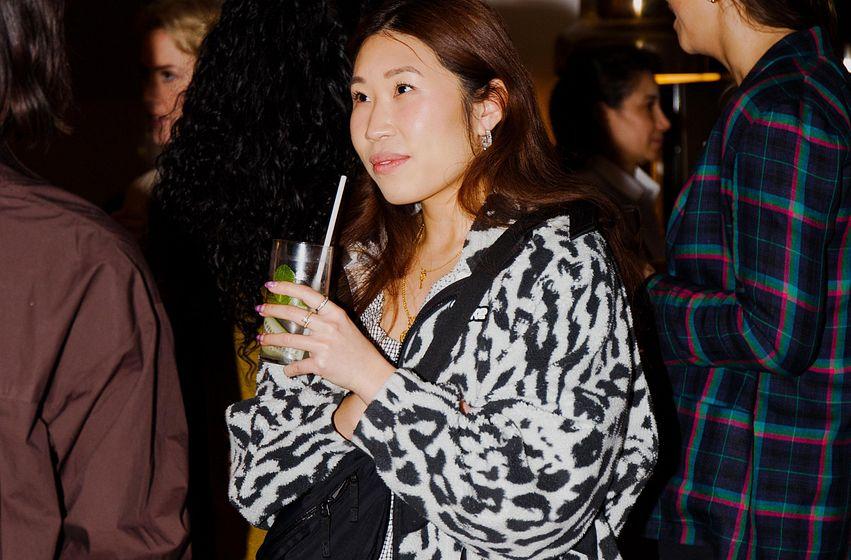
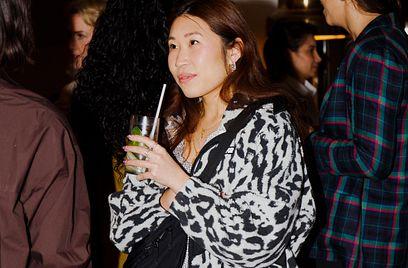
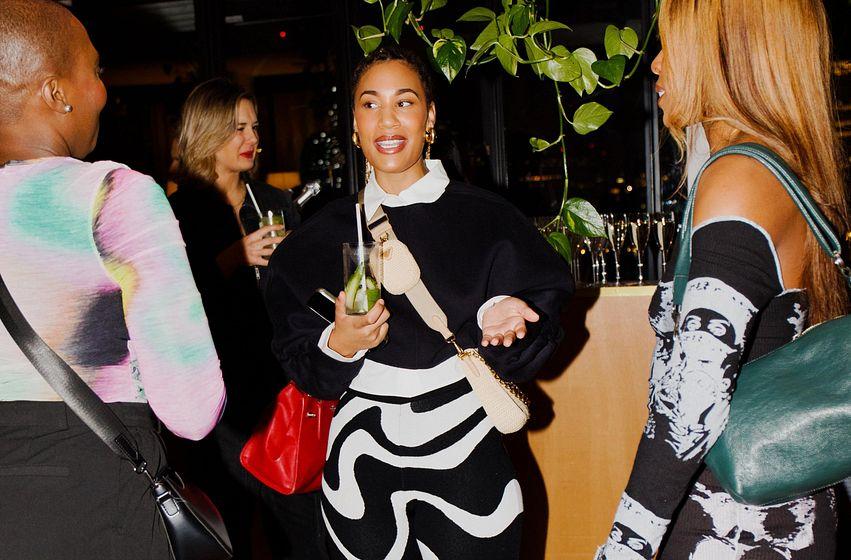
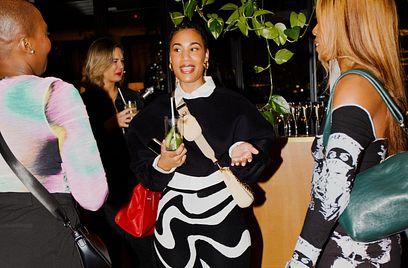
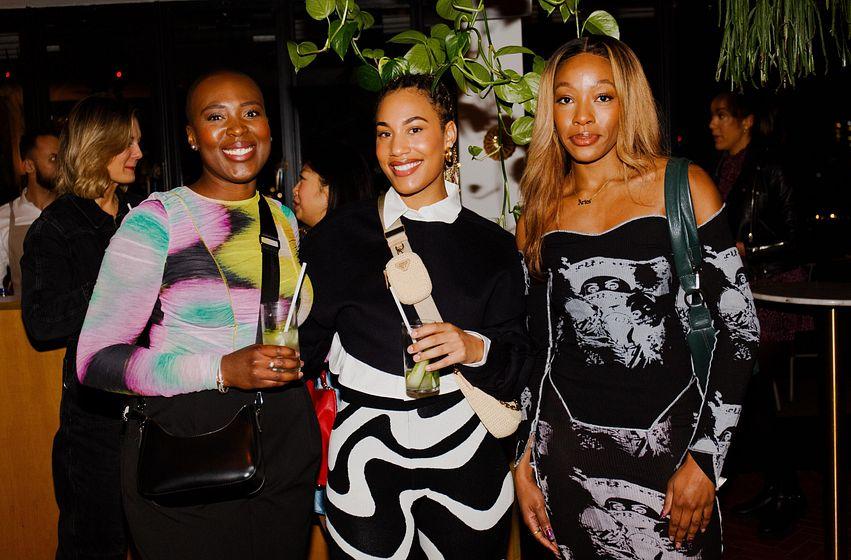
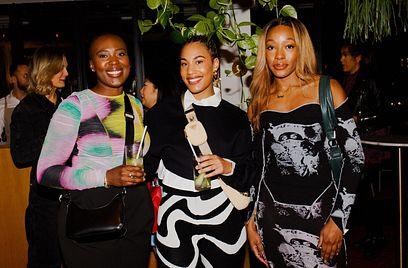
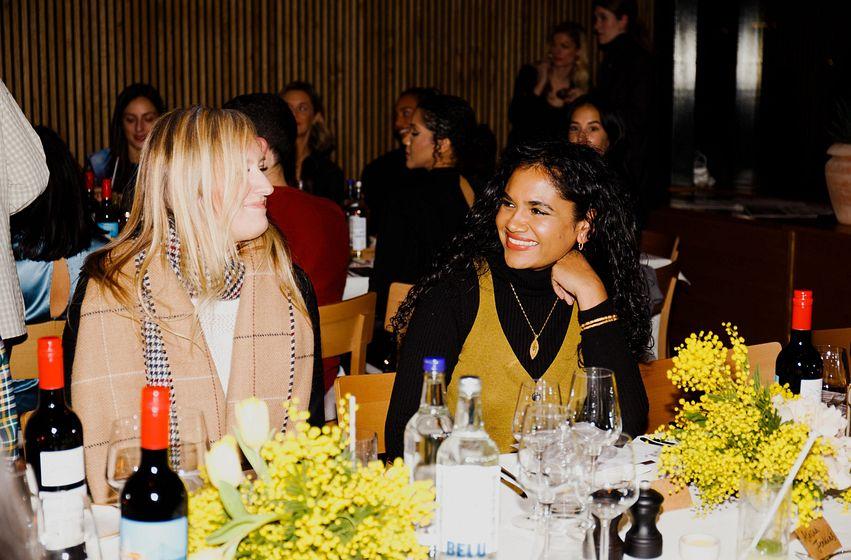
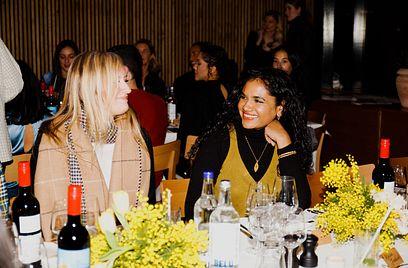
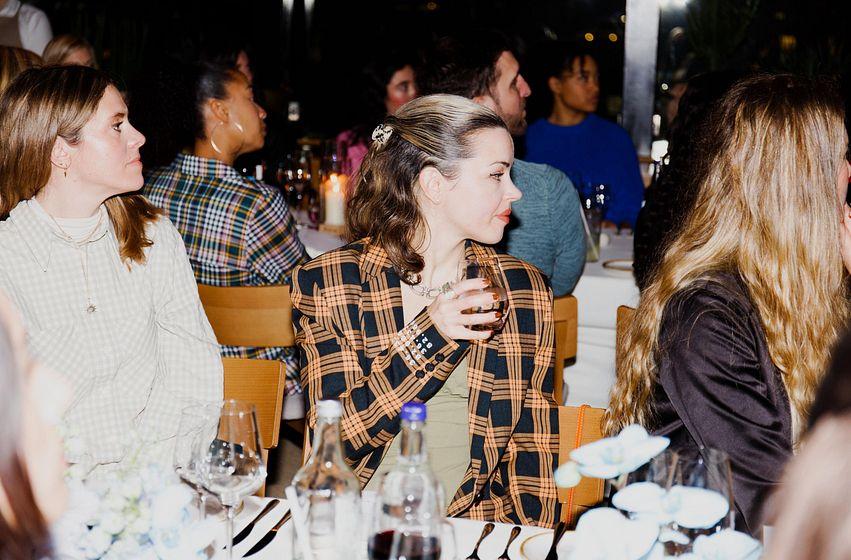
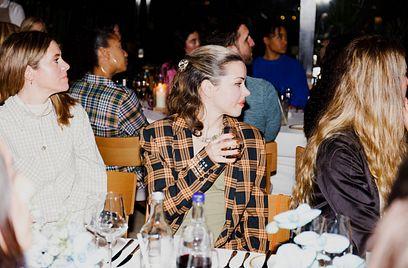
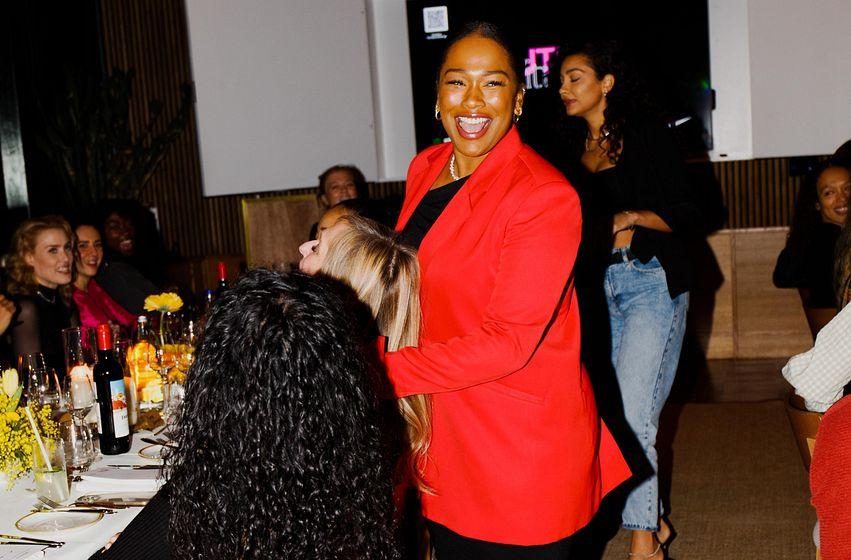
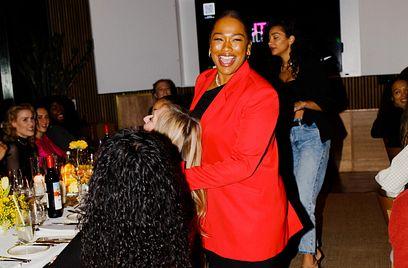
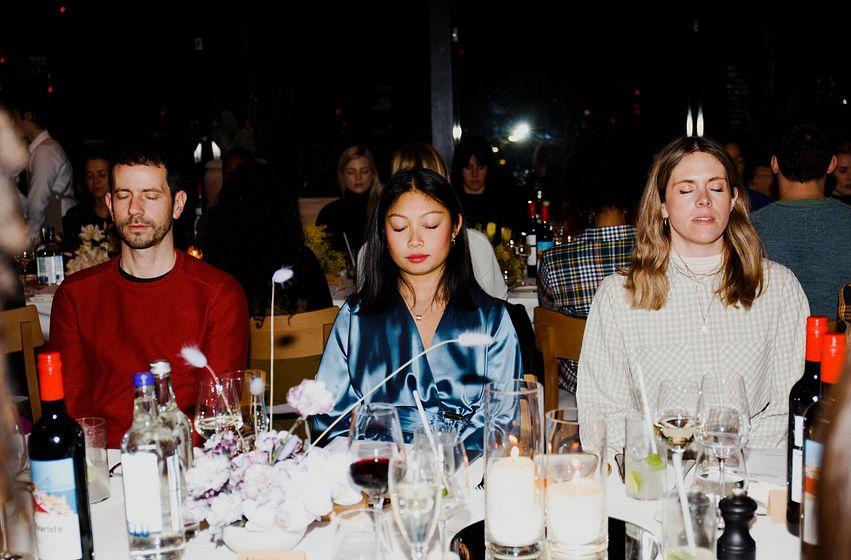
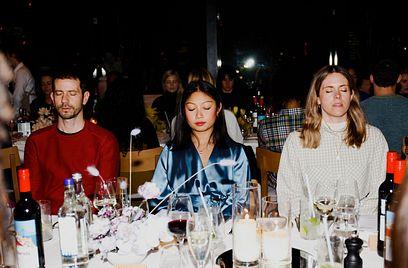
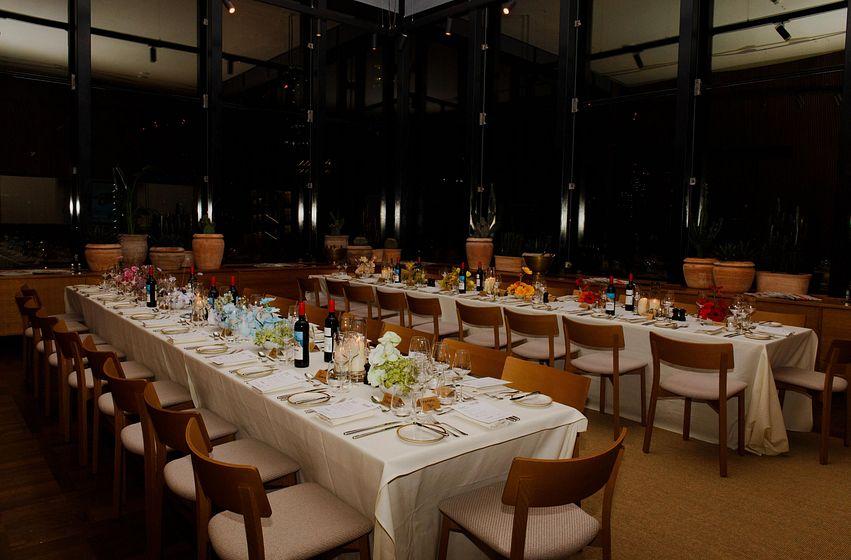
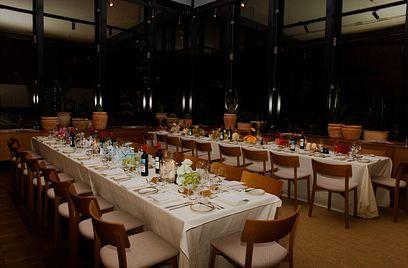
The overarching essence of the first course was that for many, wellness was a discovery that came post-burnout, and with this, an enhanced understanding that a wellness practice should be intuitive, fluid and playful.
"We looked it at it like a wheel," said Nadia May, "a lot of us came to discover wellness through burnout, or feeling like our needs weren't being met." Adding: "We also said menstrual health, as in when do we thrive within in our cycles and how do we honour those needs?"
In fact when asked, over half the room raised their hands to agree that they time their wellness and fitness practices with their cycles. A point that resonated with Nafisa Bakkar, founder of Amaliah, the media company that creates content and events for Muslim women to thrive, and author of How To Make Money (out this week).
"I interviewed a lot of different founders, and there is this whole chapter on burnout and wellness. I very much found wellness though burning out time and time again with work. So, it is really thinking about how does my body feel and what are my hormones actually doing to my body right now —then it's working out how I can be in sync with that."
Another major commonality in the discussion was centric to wellness being a journey with no definitive end, rather a continuous craft to hone and adapt depending on where you are in life.
"Your never going to be 100% that just doesn't exist," shared anti-racism activist and content creator Angel Arutura, "it's knowing that wellness is a cycle and it's going to look different at different points in the year and whether it is race, disability, or income, understanding the intersections of wellness is also so important."
For Founder of Milk Honey Bees, Ebinetha Eyere, play is paramount: "We spoke about how sometimes fitness feels heavy…play is very important to me, play for adults was removed from us, and we should promote play to make waves."
Community, Practicality and Personal Expression — How personal style is connected to fitness
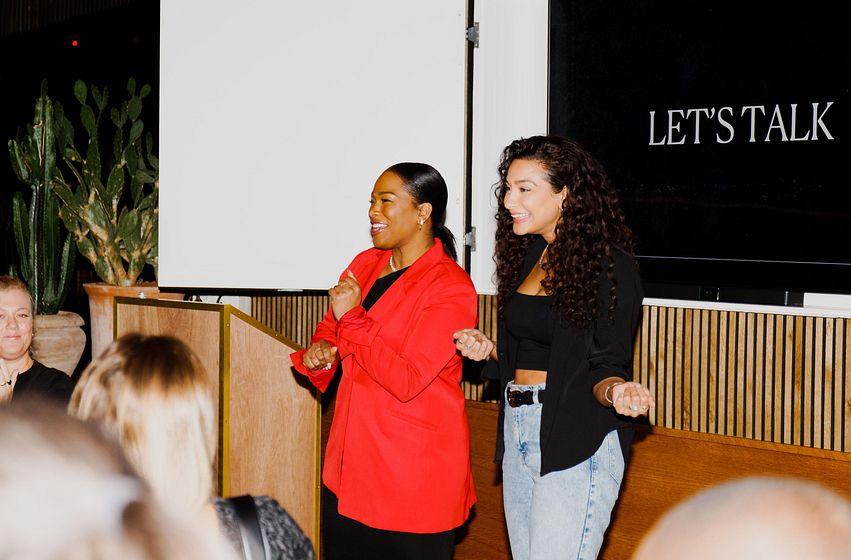
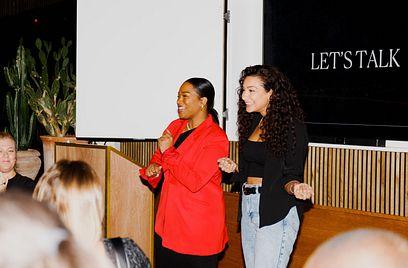
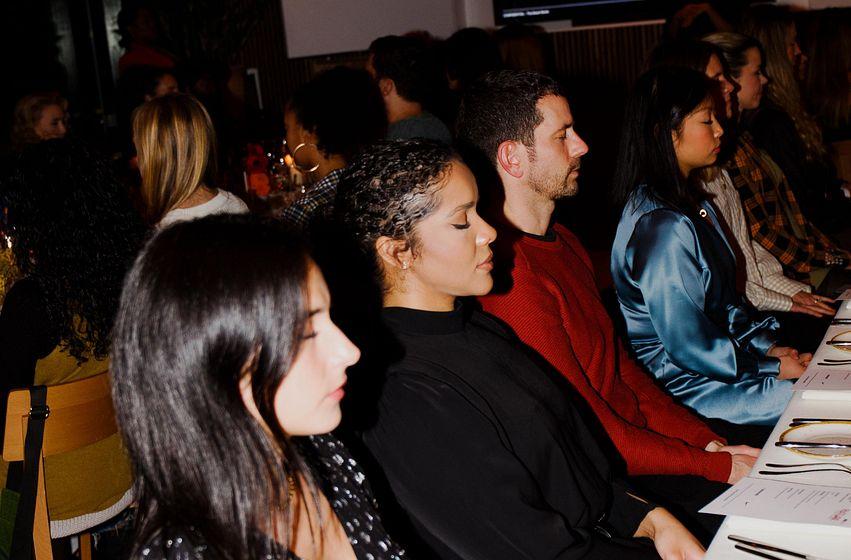
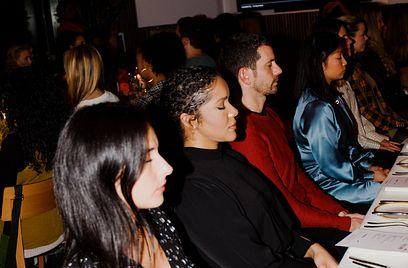
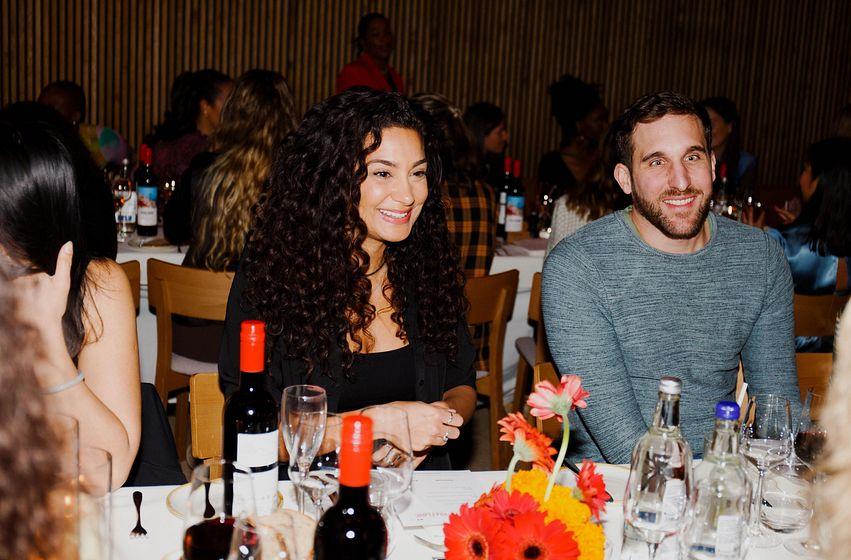
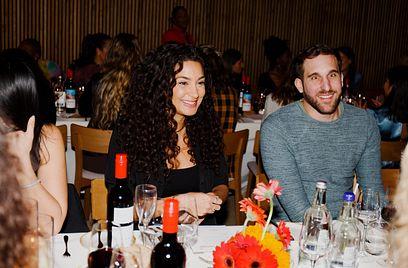
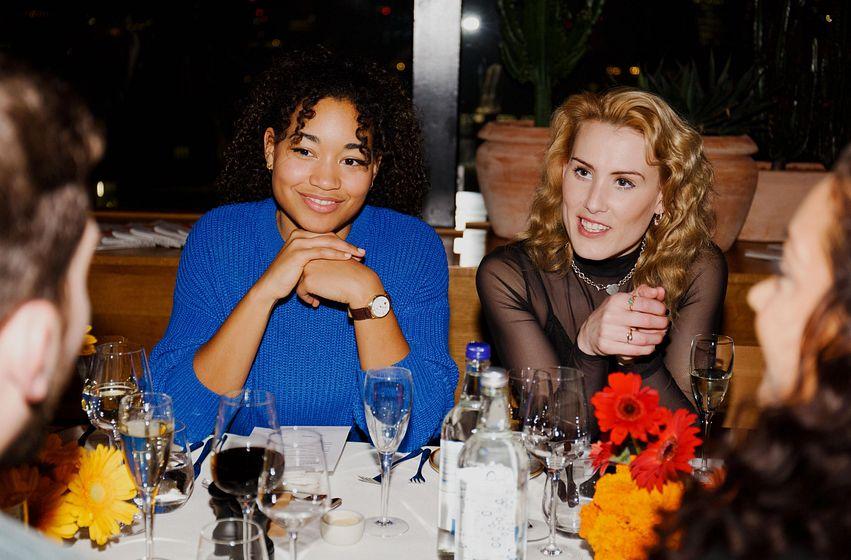
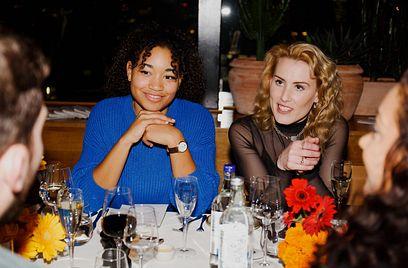
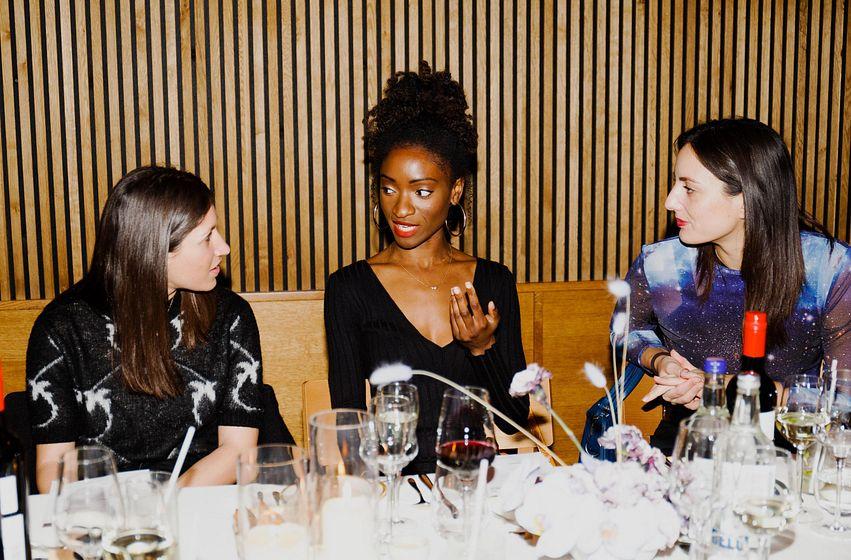
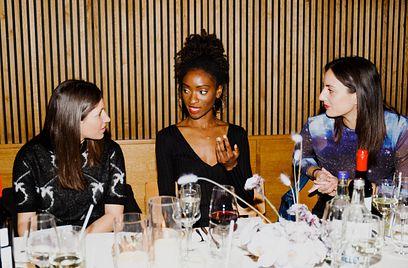
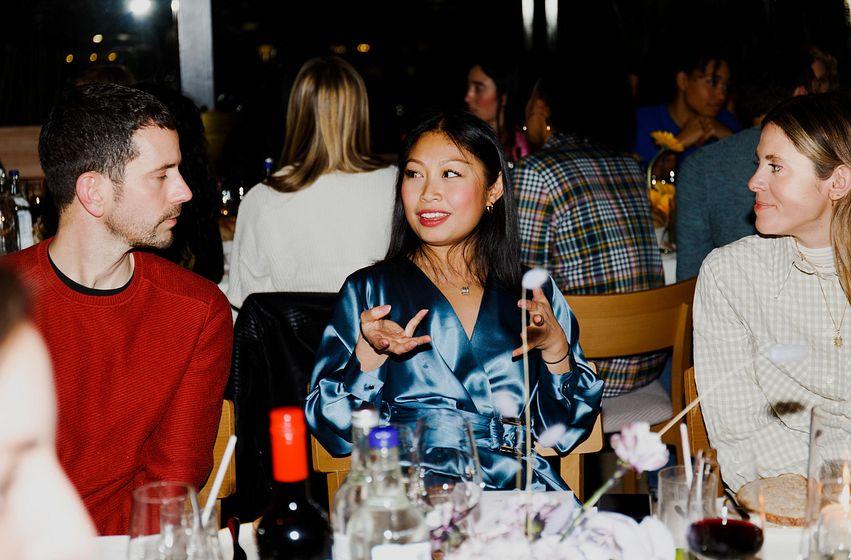
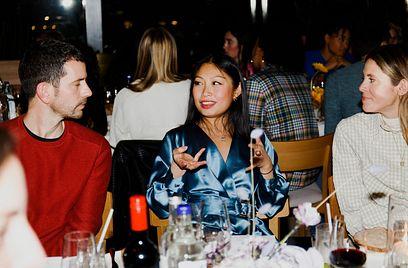
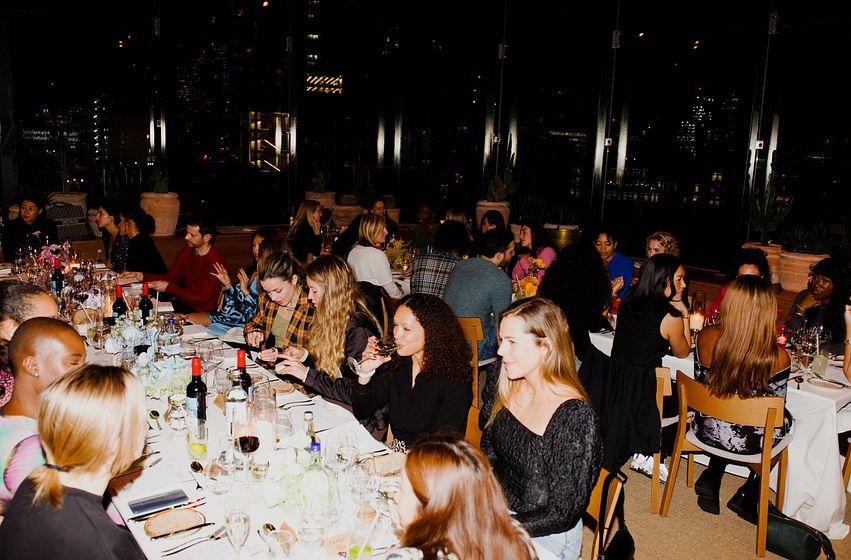
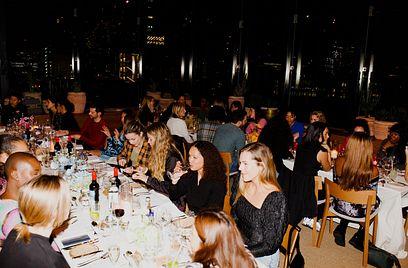
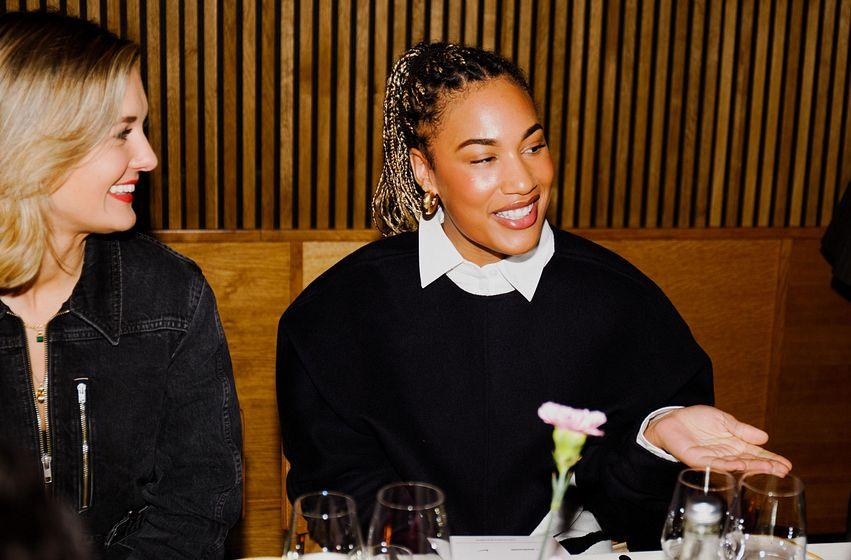
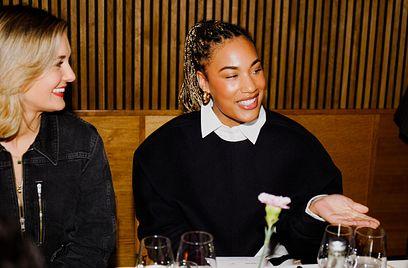
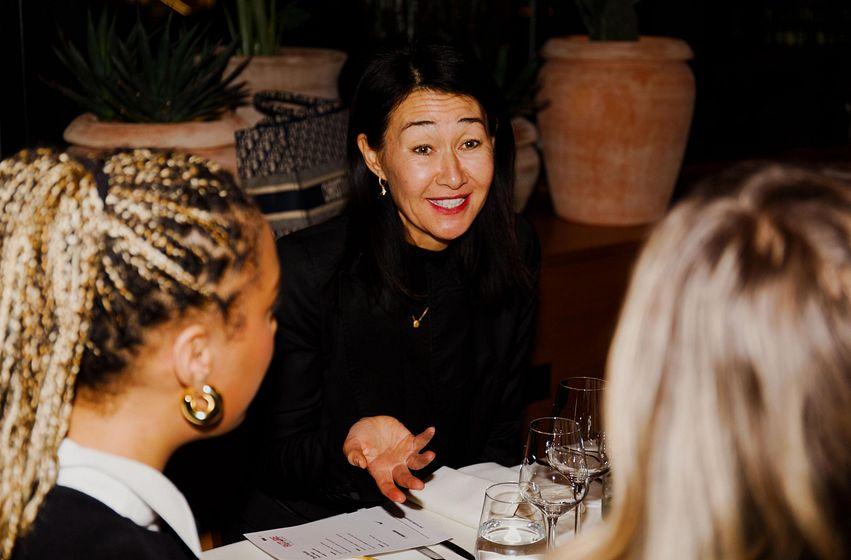
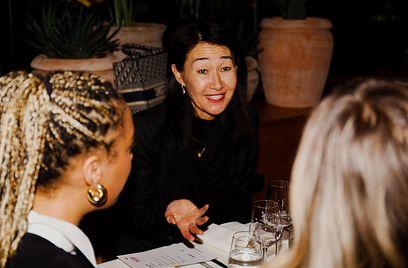
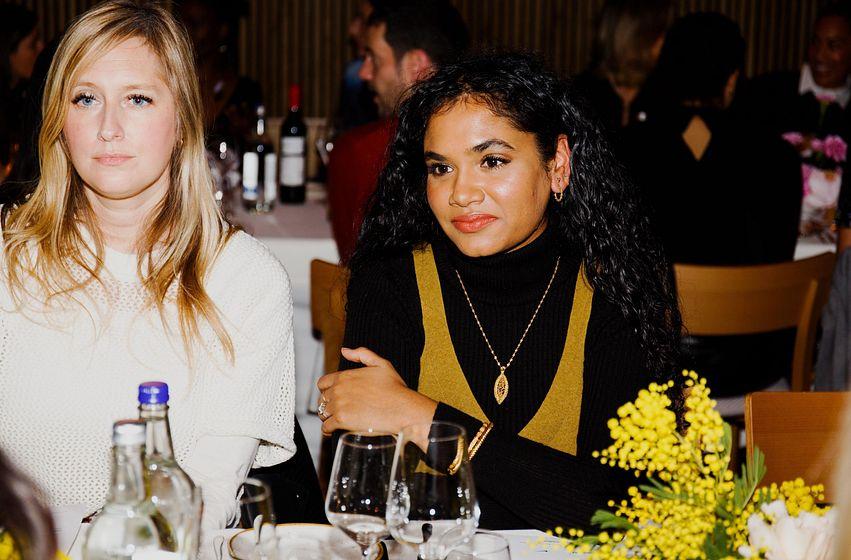
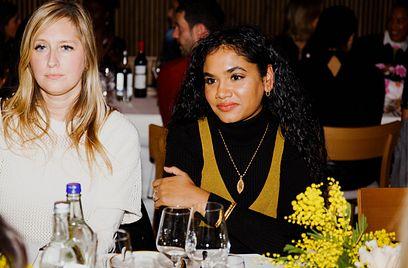
For the main course, Miso glazed aubergines with puffed rice or seared cod with crispy greens were plated up, going alongside question number two: How does your personal style form part of your fitness identity?
"As I have gotten older my style has changed," said Chante Joseph host of the Guardians Weekly Pop Culture podcast, "I invest in my community and also think are the clothes I am wearing to my class actually practical… I'd love to start a pole line, because pole wear is so sparkly and amazing but very impractical… So I think practicality, sustainability and longevity is what my personal style is."
Whilst for Claire Barnett Director of Untited Nations Women UK and founder of fitness company, it was more about experimentation. "We spoke about the ability to try on different roles, to experiment within styles."
Whereas Calais Lois, founder of The Breath Room, opts for consistency: "We spoke about how we think of it [fitness wear] as an extension of our day, as opposed to a diversion for your style… For me personally after having a child I am very strategic an intuitive when buying sportswear so I can be completely mindless."
Jumping, Laughing and Dancing — What movement sparks your inner joy?
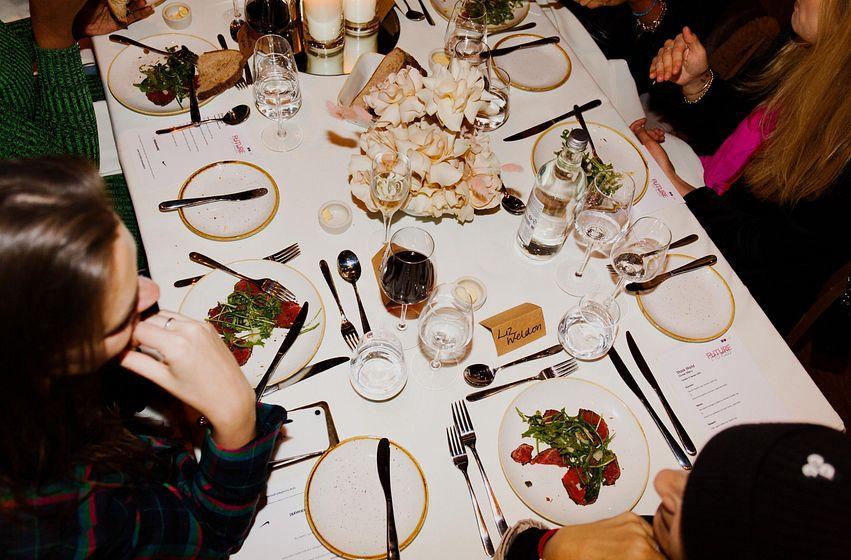
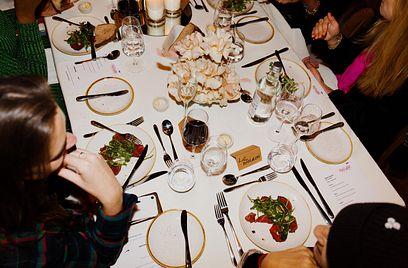
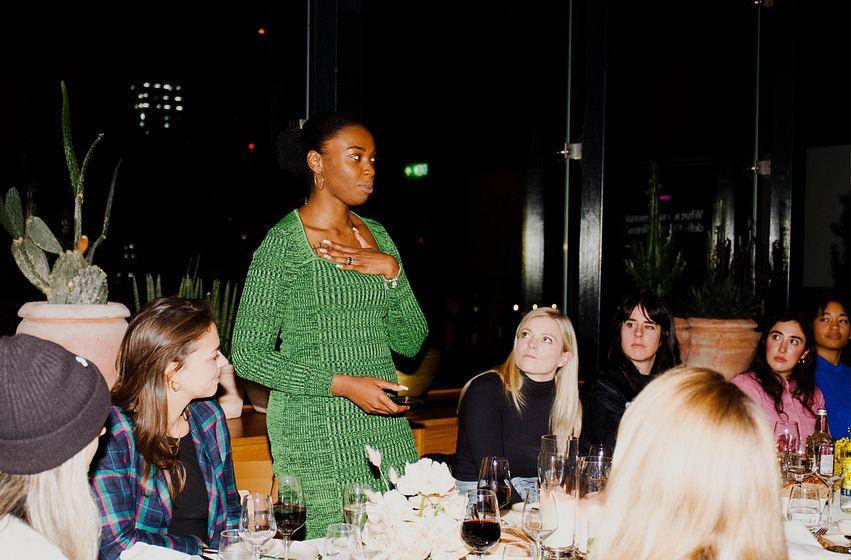
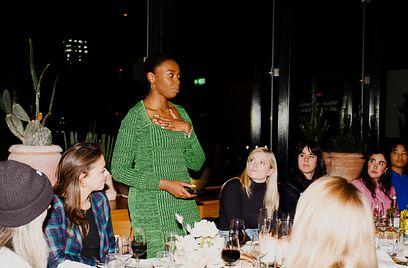
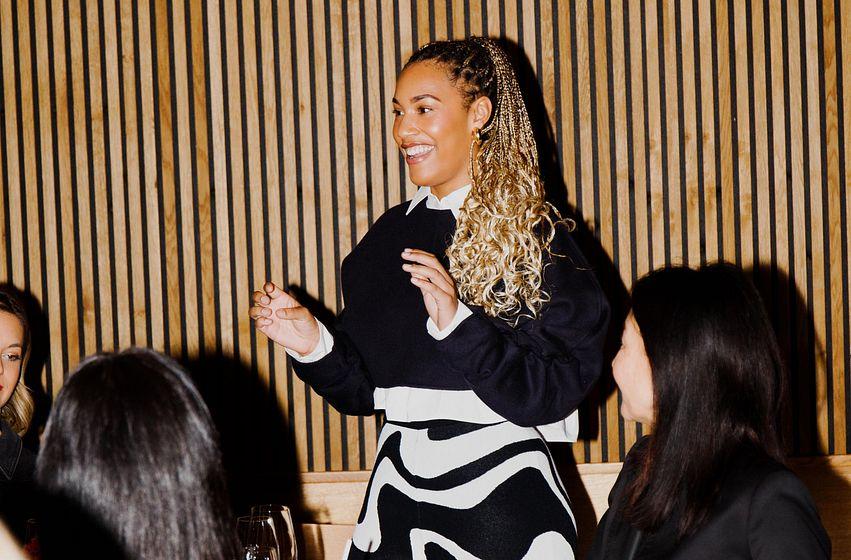
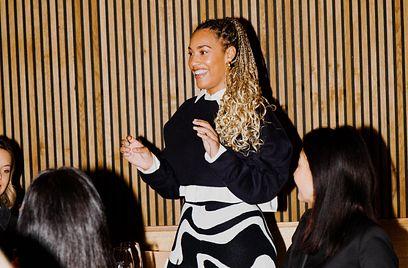
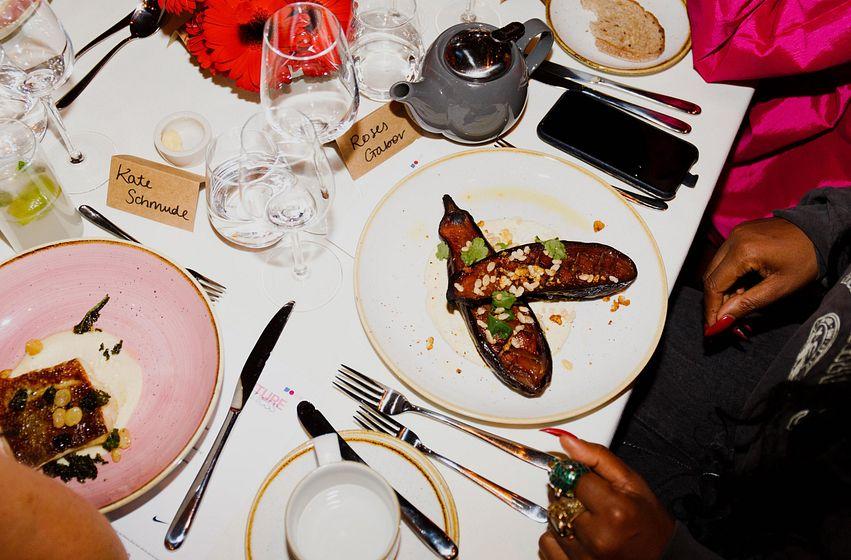
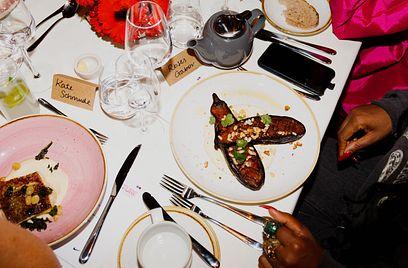
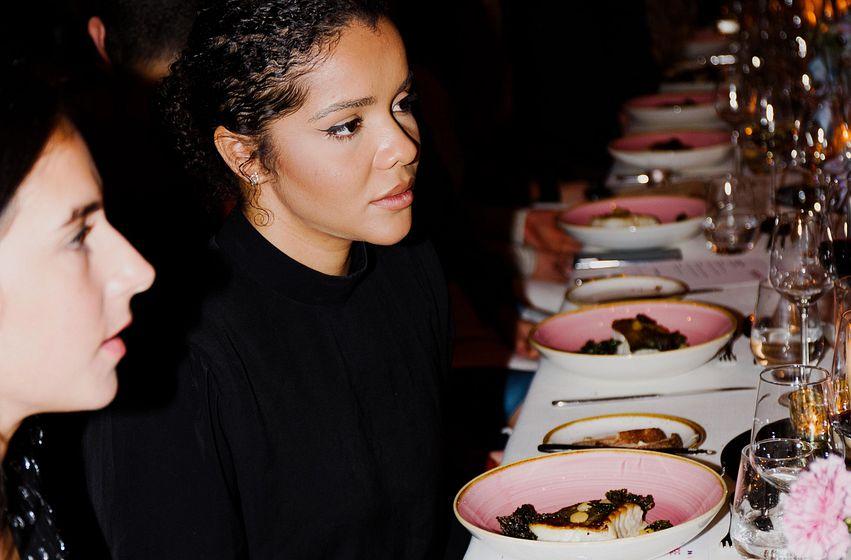
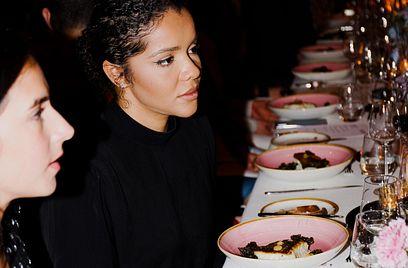
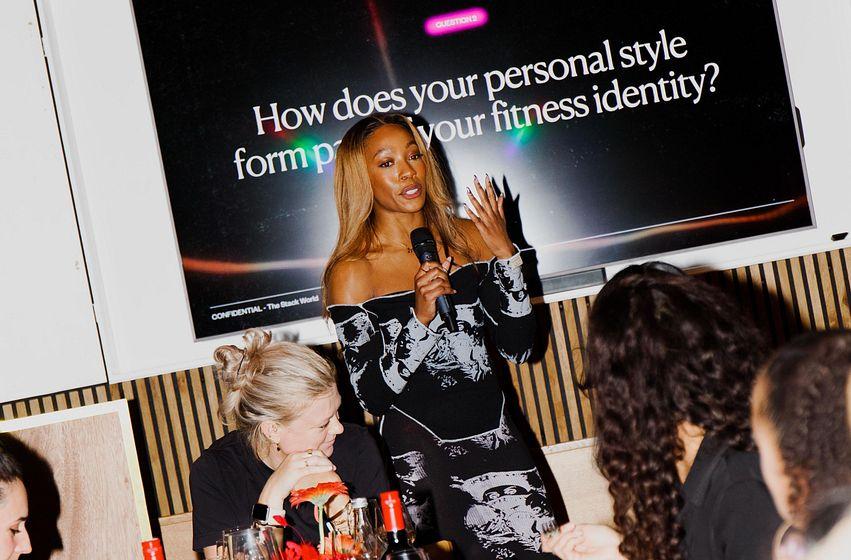
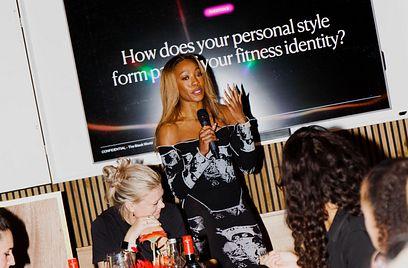
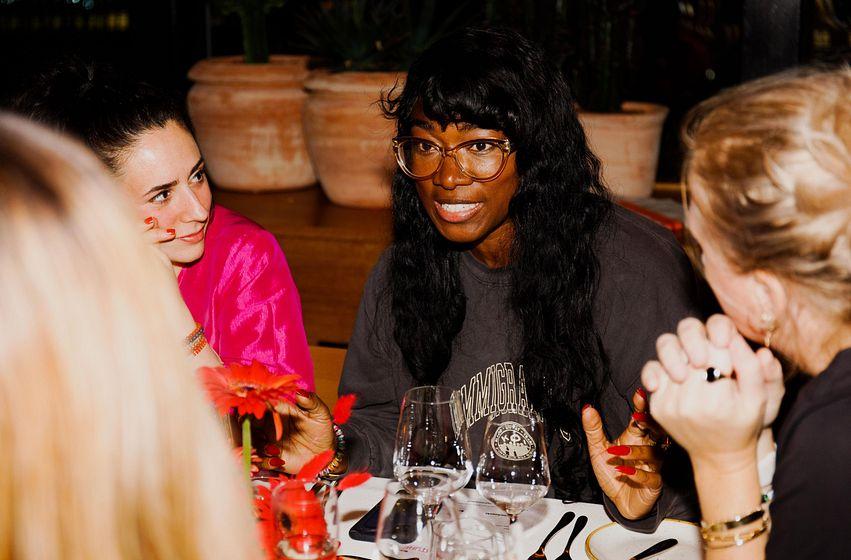
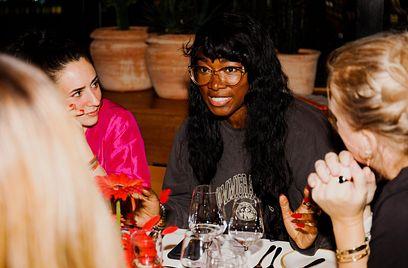
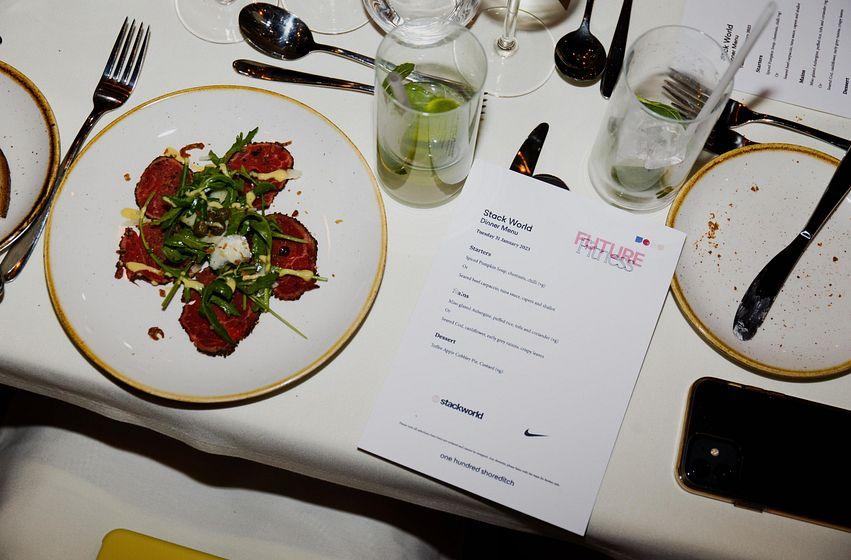
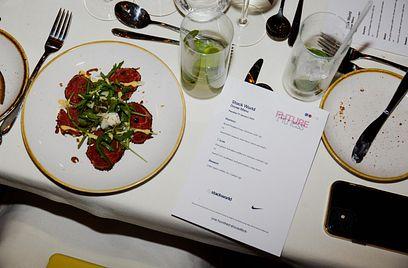
For desert, toffee apple cobbler pie and the final question of the evening: What form of movement brings you the most joy?
In true Stack World Style, the one-word-checkout approach was applied, a top of the mind point in tune with the way you are feeling, and a style of question that challenges you to distance yourself from the pragmatic thinking.
"What is about that movement," asked Sharmadean Reid, "I am asking you this intentionally, what we have spoken about this evening is bringing awareness bad to the centre, the body and our feelings".
Here are a few of the answers: "Flipping upside down" | "Loosing myself in a kitchen rave" | "Being breathless" | "Shivasna postion when you've really earn't it" | "Pain in your belly after laughing" | "Free flowing dance" | |The inhale before trying hit that note in karaoke" | "A strong with your whole body kick" | "Water on your face when you first hit the pool" | "Cartwheeling"
The Short Stack
About last night: The Stack World x Nike hosts a curated dinner party to explore the relationship between style, movement and wellness.
By Hannah Connolly
“I Drank Alcohol To Mask My Anxieties – Then Was Diagnosed With Pure OCD”
The ‘Pure O’ or ‘purely obsessional’ type of OCD is characterised by distressing, intrusive thoughts and mental rituals to cope with them. Rae Elliman shares her experience of living with – and learning to manage – these hidden compulsions
